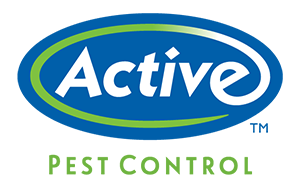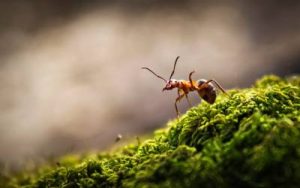 Ants can be found in practically every corner of the world, but that doesn’t make them any more pleasant when they are marching across your kitchen counter. Although these pests are small, a single colony can contain between 50,000 to 500,000 ants! With how large ant colonies can grow, it can be incredibly hard to get rid of them hard on your own. Although it may seem like sometimes you are on your own in the battle against ants, natural ant predators are working alongside you to keep the ant population in check.
Ants can be found in practically every corner of the world, but that doesn’t make them any more pleasant when they are marching across your kitchen counter. Although these pests are small, a single colony can contain between 50,000 to 500,000 ants! With how large ant colonies can grow, it can be incredibly hard to get rid of them hard on your own. Although it may seem like sometimes you are on your own in the battle against ants, natural ant predators are working alongside you to keep the ant population in check.
What Eats Ants?
Ants have many natural predators that help regulate the ant population. Below are a few Georgia native animals that enjoy munching on ants:
- Armadillos: Armadillos use their long claws to dig in the ground in search of insects. Ants are one of their favorite snacks.
- Birds: Birds such as sparrows, starlings and woodpeckers are known to eat ants. In addition to eating ants, some birds participate in a ritual called anting where the bird, for unknown reasons, will kill and rub dead ants on their body.
- Insects: Many common insects will also eat ants as part of their diet. Beetles, praying mantises, spiders and even other ants will feast on ants.
- Rodents: Rodents are opportunistic eaters and some are known to eat a wide range of small insects, including ants.
- Bears: When young bears are transitioning to eating solid food, they will often search for ant colonies to eat. Once a bear is mature, they will usually only eat ants in times of food scarcity.
How to Prevent Ants
The most important step in keeping an ant free home is ant prevention. Ants are able to enter your home through even the smallest hole of crack. Examine the exterior of your house regularly, sealing any entrance points. This will not only help prevent ants in your home but also a multitude of other pests.
Ants will commonly enter a home in search of food and can often be found marching across your kitchen floor or counter. Make sure to clean any spills or crumbs quickly and keep food in airtight containers.
Although these measures will help keep ants out of your home, the best way to keep ants away for good is by hiring a trusted local pest control company.
Professional Ant Extermination
While natural ant predators are helpful in controlling the ant population, the most effective way to keep ants out of your home is through professional ant extermination. Trusted exterminators, such as those at Active Pest Control, not only eliminate existing ant infestations but also work with you to create a plan to prevent future pest invasions.
Active Pest Control has been keeping Georgia homes pest free for generations. We understand the frustration caused by ant infestations and are dedicated to providing long-lasting solutions. If you’re tired of dealing with ants or any other pests in your home, contact the experts at Active Pest Control today for a free quote!

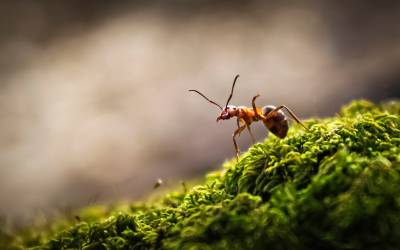
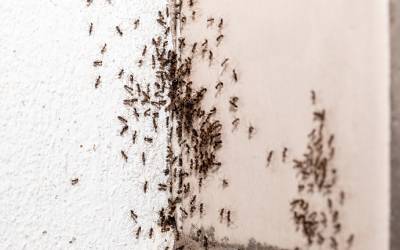
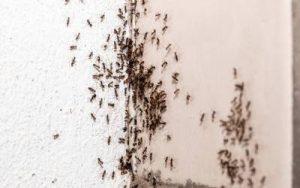
 Spring and summer in Georgia come with a lot to be excited about. However, the warm weather and sunshine following rainfall lead to all kinds of pest problems in our region. It’s important to be able to stop pests from finding food sources, shelter, and breeding grounds in your backyard, because without any effort put into pest prevention, your background will be overrun with pests for most of the year. If you’re wondering how you can pest-proof your backyard, read on for advice from our expert exterminators at Active Pest Control!
Spring and summer in Georgia come with a lot to be excited about. However, the warm weather and sunshine following rainfall lead to all kinds of pest problems in our region. It’s important to be able to stop pests from finding food sources, shelter, and breeding grounds in your backyard, because without any effort put into pest prevention, your background will be overrun with pests for most of the year. If you’re wondering how you can pest-proof your backyard, read on for advice from our expert exterminators at Active Pest Control!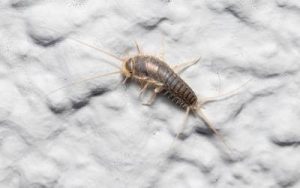 The bathroom is the place where we go to get clean. The last thing we want is for our bathrooms to be teeming with unwanted critters! Many kinds of pests are attracted to the moisture and humidity that accumulates in our bathrooms, whether that be for hospitable temperatures, water to drink, or to prey on the insects that are gathering there. Read on to learn from the experts at Active Pest Control about the types of pests that congregate in our Atlanta bathrooms.
The bathroom is the place where we go to get clean. The last thing we want is for our bathrooms to be teeming with unwanted critters! Many kinds of pests are attracted to the moisture and humidity that accumulates in our bathrooms, whether that be for hospitable temperatures, water to drink, or to prey on the insects that are gathering there. Read on to learn from the experts at Active Pest Control about the types of pests that congregate in our Atlanta bathrooms.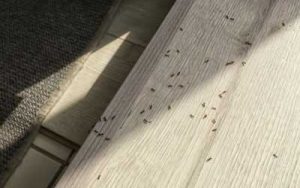
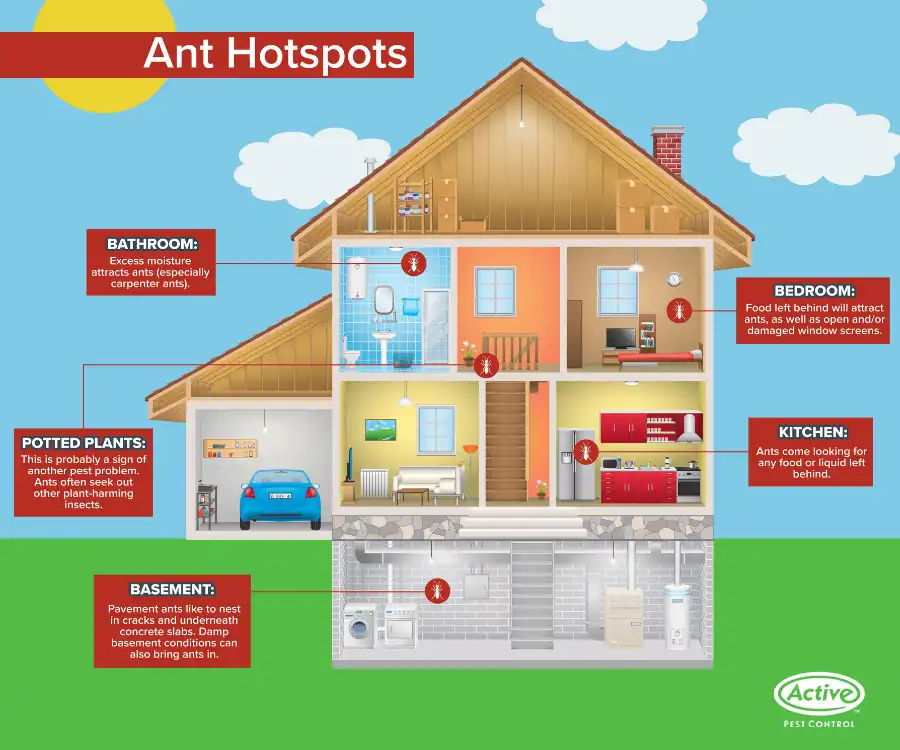 What Can I Do to Stop Ants?
What Can I Do to Stop Ants?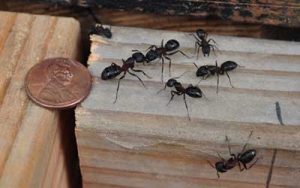 Have you noticed that pests start to get worse here in Atlanta as spring temperatures warm up? Wasps and bees begin to buzz around, winged insects crawl on your exterior walls, and you start to notice the dreaded ants crawling along your floorboards. Springtime is pest time nationwide. This time of the year is when many pests that were less active in the winter months begin to come out of dormancy. The reason why pest problems become so common in the spring, however, is because many of the pests were already lying in wait in the winter—right inside your home.
Have you noticed that pests start to get worse here in Atlanta as spring temperatures warm up? Wasps and bees begin to buzz around, winged insects crawl on your exterior walls, and you start to notice the dreaded ants crawling along your floorboards. Springtime is pest time nationwide. This time of the year is when many pests that were less active in the winter months begin to come out of dormancy. The reason why pest problems become so common in the spring, however, is because many of the pests were already lying in wait in the winter—right inside your home.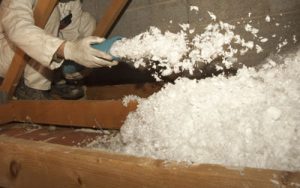 If you’re looking to install insulation in your home, you’ve likely heard about TAP® Insulation. This popular home insulation method has a number of benefits and is an increasingly common installation for homes in the Atlanta GA area. In addition to providing great insulation and energy efficiency, it is prized for its pest control properties. Infused with borate, this pest resistant insulation works to ward off insects, wildlife, and other pest problems. The team at Active Pest Control is here to share expert information on why TAP is the superior home insulation product available to homeowners today.
If you’re looking to install insulation in your home, you’ve likely heard about TAP® Insulation. This popular home insulation method has a number of benefits and is an increasingly common installation for homes in the Atlanta GA area. In addition to providing great insulation and energy efficiency, it is prized for its pest control properties. Infused with borate, this pest resistant insulation works to ward off insects, wildlife, and other pest problems. The team at Active Pest Control is here to share expert information on why TAP is the superior home insulation product available to homeowners today. With summer winding down, you’re likely wanting to spend as much time outdoors as possible. Whether you are hosting a backyard barbecue or reading out on your patio at night, the last thing you want to deal with is a pest problem. Mosquitoes, ticks, flies, lawn pests, and wasps are just a few of the many pests that can become quite a nuisance. At Active Pest Control, we know you want to enjoy your time spent in your outdoor living spaces to be pest-free*, which is why we’re here to provide you with our top tips for pest-free* outdoor living in your Atlanta area home.
With summer winding down, you’re likely wanting to spend as much time outdoors as possible. Whether you are hosting a backyard barbecue or reading out on your patio at night, the last thing you want to deal with is a pest problem. Mosquitoes, ticks, flies, lawn pests, and wasps are just a few of the many pests that can become quite a nuisance. At Active Pest Control, we know you want to enjoy your time spent in your outdoor living spaces to be pest-free*, which is why we’re here to provide you with our top tips for pest-free* outdoor living in your Atlanta area home.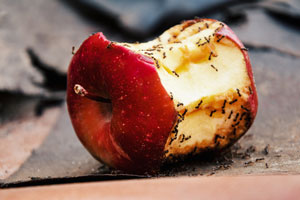 Ants can be a problem year-round, but they tend to show up in overwhelming numbers during the summertime here in the Atlanta area. Although ants aren’t considered as dangerous as other pests, they are the number one nuisance pest in the nation for a reason. They often will appear in your kitchen, bathrooms, and along your floorboards in search for food and shelter. To avoid the frustration of ants in your property, it’s important to learn how to prevent summertime ants.
Ants can be a problem year-round, but they tend to show up in overwhelming numbers during the summertime here in the Atlanta area. Although ants aren’t considered as dangerous as other pests, they are the number one nuisance pest in the nation for a reason. They often will appear in your kitchen, bathrooms, and along your floorboards in search for food and shelter. To avoid the frustration of ants in your property, it’s important to learn how to prevent summertime ants.